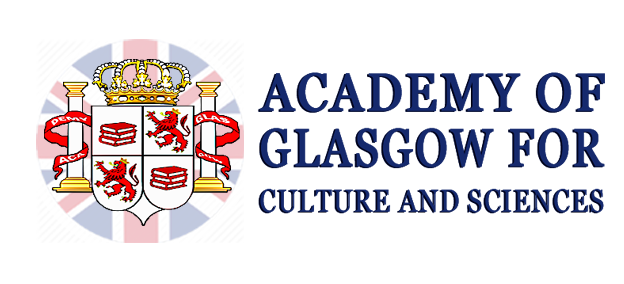Welcome to the Professional Doctorate program (Ph.D Prof.)
Welcome to the Professional Doctorate program (Ph.D Prof.)
During your Professional Doctorate, the changes you propose, plan and, potentially, implement are designed to have a positive influence on your professional practice. These changes may also have a positive influence on facets of your organisation
Change can look very different from one professional practice and/or organisation to another. The type of change you may propose, plan for, and then potentially implement may be large through a focus on changes in structural or cultural factors (such as policy, strategy, systems, organisational structures and/or teams
Large changes may also occur through changes to process factors such as technology, software, product design, service delivery, and the knowledge that underpins practice and/or organisations
In contrast, changes can also be smaller by focusing on people-centred changes, through consideration of such factors as attitudes and behaviours, skills, roles and responsibilities, developmental programmes, and performances of individuals.
Consequently, the focus of your Professional Doctorate will be relevant to your professional practice and will most likely be unique.
Deciding whether to pursue a PhD or professional doctorate can be a complex process. The differences between the two doctoral program types vary in every field—and they are also evolving. In terms of program
all doctoral programs require coursework and an independent research project. Some require comprehensive exams, and many include residencies
Professional doctorates are equivalent to a PhD but have a focus on a specific professional context. Once you have completed your professional doctorate you will have the title of doctor
Professional degrees for professionals
These programmes are designed for professionals in the public, private, and third sectors. As with any other research degree, you will – with the advice and guidance of your personal supervisor – need to produce a piece of original research. The difference is that your research will be informed by your own professional practice and will usually seek to develop understanding that contributes to professional practice more broadly.
You will, therefore, need to have an interest in your professional context and be able to explore this through a structured research programme leading to you making an original contribution to understanding of that professional context.
The following graphic shows the differences between a PhD program and a professional doctorate program:
| Ph.D . | Professional Doctorate | |
| DEGREE FOCUS | Contribute new knowledge aimed at solving real-world problems. | Apply existing knowledge aimed at solving real-world problems. |
| INDEPENDENT RESEARCH PROJECT | Five-chapter dissertation. | Five-chapter applied dissertation or paper, product, or portfolio. |
| CAREER INTENTION* | More interest in consulting and/or conducting research. | More interest in practicing directly in the profession. |
study should start with assessing your career goals and how you plan to apply your degree, and determining the kind of research that interests you most.
The doctoral dissertation is the crowning achievement of your PhD program and an accomplishment of which you can be very proud. It’s also a significant undertaking. For any large project like this, understanding the steps and sequence can help reduce some of the anxiety you may be feeling about writing a dissertation.
- An outline of the full background of your study
- A comprehensive literature review supporting your research
- A discussion of your choice of research design, data collection and analysis, and details of the research steps
- The actual data analyses and results, and
- The final evaluation and interpretation of your results.
As you progress through your program, each of the steps described below is designed to help you make concrete progress on your dissertation in smaller, manageable chunks.
Step 1: Project Ideation. In your coursework, you will learn a great deal about the theories and practices central to your field of study. You will gain broad exposure to the field to help you to start thinking about a topic of inquiry for your project. You will also learn more about research ethics and methodologies so that in the next phase you will be ready to formally develop your project proposal.
Step 2: Project Development. Next, you will narrow down your choice of topics and begin to build the detailed format of your project. In this step, you will develop a detailed research plan that outlines the theoretical basis for your research, the questions you hope to answer, a research methodology, and proposed data analyses. In creating such a detailed research plan, you will also be developing much of the content for the first three chapters of your dissertation.
Step 3: Project Implementation. This step begins with submitting your study for approval from the Institutional Review Board . The will review your project to ensure it meets the standards for ethical research. Once you get approval, you can start to gather the data that you will analyze in the next step. During this step, you will also write and synthesize much of the content for the remaining chapters of your dissertation.
Step 4: Project Conclusion. In this step you will complete your data collection and analyze the results. You will also finish writing of the final two chapters of your dissertation in which you summarize your findings and connect your findings back to the questions and theories you discussed in earlier chapters. Prior to submitting your final dissertation for approval by your faculty review and edit it to ensure synthesis of all the content.
Step 5: Approvals. In the final step of completing your dissertation, you will submit your project for final format editing and approval .
Whatever step you’re on, one of the key factors to success is time management. Every step requires considerable work. Breaking down each step is a good approach, as is diligently scheduling time every week to continue working. It may feel overwhelming to contemplate the entire process at once, but bundling it into smaller goals helps it become less daunting.
If you plan to take more than three courses, consider pursuing a graduate certificate.
Some certificates can be obtained with just four or five courses. Or keep the momentum going by pursuing your public health degree in a bachelor’s, master’s, or doctoral program or administration degree in a bachelor’s, master’s, or doctoral program.
Your graduate certificate can stand alone to demonstrate your specialized knowledge, but because each certificate program is comprised of master’s- doctoral-, or bachelor’s-level courses, you can apply the credits you earn to a degree program in the same area.
maximum of three courses taken as a Academy of Glasgow nondegree student can be applied to a subsequent Academy of Glasgow degree program.
It is the responsibility of the applicants to verify with education institution(s) that these course(s) will fulfill transfer credit or admissions requirements into an advanced practice program.
Academy of Glasgow cannot guarantee salary advancement. State licensing regulations and professional standards vary; learners are responsible for understanding and complying with the requirements of the state in which they intend to work.
Certification Information
While some professional degree programs from ACADEMY OF GLASGOW FOR CULTURE & SCIENCES are designed to prepare students to meet international professional certification requirements, these programs may not necessarily meet the professional degree requirements in other countries.
Students who plan to enroll in international professional degree programs with the intention of obtaining the professional degree in other countries should be familiar with the professional degree requirements in those countries.
Current students who are planning to undertake field experiences abroad should be familiar with the requirements of other countries.
In line with regulations, the Glasgow Academy of Culture and Science makes a good faith effort to determine whether our professional programs leading to professional certificates may meet the requirements of other state licensing boards, and doing so requires contacting your state licensing boards and having those boards reviewed The curricula of the program, which qualifies you to obtain a professional certificate in the specialization you wish to join.

[gravityform id=”37″ title=”true” description=”true”]
